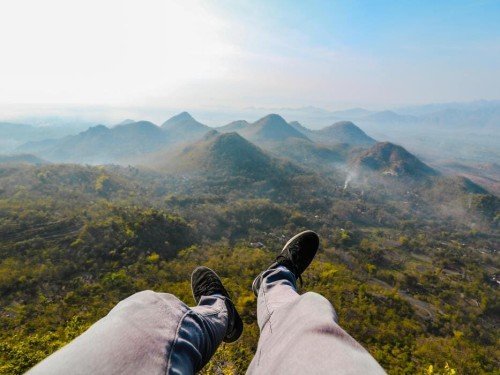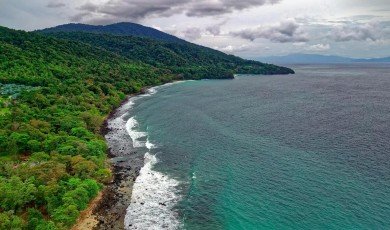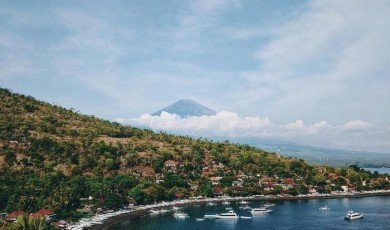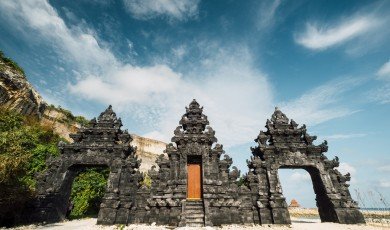
Indonesia is a country of immense cultural richness, spanning over 17,000 islands and home to hundreds of ethnic groups. Its diverse traditions, languages, and art forms make it one of the most vibrant countries in the world. From Bali’s sacred temples to Java’s historic landmarks, Indonesia offers a unique combination of natural beauty and cultural heritage that continues to attract travelers, researchers, and professionals.
However, exploring Indonesia’s culture also comes with the challenge of navigating medical information, especially for international visitors and professionals. With hundreds of languages and unique local practices, accessing accurate healthcare documentation or communicating effectively with medical providers can be complex. This is where professional translation services, including a medical translation agency, become essential for bridging communication gaps while maintaining accuracy and cultural sensitivity.
Indonesia’s Rich Cultural Landscape
Indonesia’s culture has been shaped by centuries of interaction with different civilizations, including Indian, Chinese, Arab, and European influences. Each island and ethnic group brings unique traditions, art, and religious practices to the national tapestry.
-
Bali: Often called the “Island of the Gods,” Bali is famous for its Hindu temples, traditional dances, and vibrant festivals. Balinese culture emphasizes spirituality, community cohesion, and a strong connection with nature.
-
Java: The most populous island, Java blends traditional Javanese culture with modern influences. It is renowned for batik textiles, gamelan music, and monumental sites such as Borobudur and Prambanan.
-
Sumatra: Home to the Minangkabau, Batak, and other ethnic groups, Sumatra showcases traditional weaving, distinct architecture, and culinary diversity.
-
Sulawesi and Kalimantan: Known for their indigenous rituals, longhouses, and unique cultural expressions, these regions highlight Indonesia’s diversity.
Indonesia’s linguistic variety further enhances its cultural richness, with over 700 living languages. Bahasa Indonesia serves as the official national language, facilitating communication across regions, but professional translation is often required in medical and academic contexts.
Why Accurate Medical Communication Matters
Indonesia’s healthcare system includes both public and private institutions, providing care to millions of people. Hospitals, clinics, and research centers produce large volumes of medical documents, including patient records, clinical reports, and research data. For international teams, healthcare professionals, or travelers, understanding this information accurately is crucial.
Professional translation ensures that critical medical documents are clearly understood, reducing risks of miscommunication. For example, when international researchers collaborate with local hospitals, accurate translation of clinical studies and patient records ensures proper adherence to protocols and ethical standards. Likewise, medical tourists rely on translated materials to navigate treatments, understand prescriptions, and communicate with healthcare staff.
Integrating Cultural Awareness in Healthcare
Cultural awareness is critical when delivering healthcare services in Indonesia. Traditional healing practices are common and often complement modern medicine. Balinese medicine, Javanese herbal remedies, and Sumatran ritual healing reflect centuries of local knowledge and beliefs. Misunderstandings can occur if healthcare providers are unaware of these cultural contexts.
A professional medical translation agency ensures that linguistic accuracy is paired with cultural sensitivity. Translators trained in medical terminology and local practices can convey instructions in a way that is both precise and respectful of local traditions. This integration improves patient outcomes, facilitates research collaboration, and strengthens trust between local communities and healthcare providers.
Supporting Healthcare Tourism and Research
Indonesia is increasingly popular for medical tourism, offering specialized procedures and wellness programs. Accurate translation is vital for international patients who rely on clear communication to understand treatments, consent forms, and aftercare instructions.
Similarly, Indonesia participates in numerous international research initiatives. Translating clinical trial protocols, regulatory documents, and research findings enables scientists to collaborate efficiently across borders. Professional medical translation not only supports accuracy but also ensures compliance with both local and international standards.
Technology and Modern Translation
Advances in translation technology have improved efficiency and consistency in the healthcare sector. Digital tools, terminology databases, and AI-assisted translation solutions are widely used. However, human expertise remains indispensable, especially for nuanced terminology, complex medical procedures, and region-specific health practices. Skilled translators provide precision and context that automated systems cannot fully replicate.
Conclusion
Indonesia is a country where culture, tradition, and modernity coexist in remarkable ways. From the temples of Bali to the rice terraces of Java, the nation’s diversity offers an enriching experience for travelers, professionals, and healthcare practitioners.
Navigating medical communication in such a diverse setting requires accuracy, cultural understanding, and linguistic expertise. Professional translation services, including a medical translation agency, play a critical role in ensuring that healthcare information is conveyed clearly and respectfully. These services not only enhance patient safety but also facilitate research, medical tourism, and global collaboration.
By combining cultural awareness with precise medical translation, visitors and professionals can fully experience Indonesia’s rich heritage while maintaining high standards in healthcare communication. Discovering Indonesia thus becomes not only a journey through art and tradition but also an example of how professional translation bridges cultures and supports human health.
Most Read
Featured Posts

Indonesien Wo Natur auf Kultur trifft






